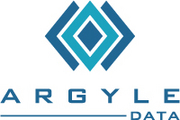PBX Hacking and IRSF: The New Knockout Combo Punch in Mobile Communications Fraud
Argyle Data Examines Why the 67% Rise in PBX Hacking Is a Key Driver of International Revenue Share Fraud
SAN MATEO, CA--(Marketwired - Mar 2, 2016) - Dr. Ian Howells, Chief Marketing Officer of Argyle Data, the leader in native Hadoop applications for revenue threat analytics in mobile communications, has released the latest in a series of articles analyzing the results of the 2015 Global Fraud Loss Survey published by the Communications Fraud Control Association (CFCA).
Dr. Howells' analysis of CFCA's data indicates a 500% growth in international revenue share fraud (IRSF: the artificial inflation of traffic terminating to international revenue share providers) between 2013 and 2015. According to CFCA's data, the top ten countries where fraud most often terminates are, in descending order: Cuba, Somalia, Bosnia and Herzegovina, Estonia, Latvia, Guinea, Serbia, Sierra Leone, United Kingdom and Lithuania.
"When there is no traffic, there is no money," said Dr. Howells. "What we are seeing is a substantial acceleration in criminal efforts to drive traffic and increase monetization."
Dr. Howells noted that one of the main ways to drive of IRSF traffic is via PBX hacking. According to CFCA data, in 2013 PBX hacking cost the mobile communications industry $4.42 billion and represented 10.9% of mobile fraud globally. By 2015, PBX hacking had increased by 67% to a total of $7.4 billion. Of the total, IP PBX hacking accounted for $3.5 billion and PBX hacking $3.9 billion. As a percentage of the total cost of fraud in 2015, PBX hacking rose sharply to 19.6%, and was therefore assigned a separate category.
"A New York Times article, Phone Hackers Dial and Redial to Steal Billions, from October 2014 highlighted the cost of PBX hacking to individual businesses," said Dr. Howells. "One of the victims was a small architecture firm whose phone bill spiked to $166,000 over a single weekend. Hackers had broken into the phone network of the company, Foreman Seeley Fountain Architecture, and routed $166,000 worth of calls from the firm to (in this case) premium-rate telephone numbers in Gambia, Somalia, and the Maldives. Based on its typical phone bill, it would have taken 34 years for the firm to run up those charges legitimately."
With high-speed computers, hackers can make hundreds of calls simultaneously, forwarding as many as 220 minutes' worth of phone calls per minute to the pay line. The hacker gets a cut of the charges, typically delivered through a Western Union, MoneyGram, or wire transfer.
"Based on our analysis, PBX/IP PBX hacking and IRSF have become the new, preferred high-velocity combination punch used by criminals," Dr. Howells said. "Mobile operators used to upload lists of 'hot numbers' to block known fraudsters, but that is like trying to fix a burst dam with a bucket. The only way to fight high-velocity attack combinations like this is with high-velocity, real-time defense using machine learning/anomaly detection applications accessing vast data lakes of network and customer data."
Further details of strategies for using big data, machine learning and data lakes to fight mobile fraud are contained in Argyle Data's ebook, 'Fighting Future Fraud,' which is available for download here.
About Argyle Data
Argyle Data is used by the world's leading mobile operators to detect the fraud, profit, and SLA threats that cost the industry $38 billion dollars per year. Argyle Data's industry-leading native Hadoop application suite uses the latest Hadoop and machine learning technologies, proven at Facebook and Google, to identify the revenue threats and attack patterns being waged against mobile networks in real time. To learn more please visit:
Argyle Data Website
Fraud & Technology Wire
LinkedIn
Twitter
Contact Information:
Contact:
Mary McEvoy Carroll
Argyle Data
Email:
Tel: + 1-408 691 4283
